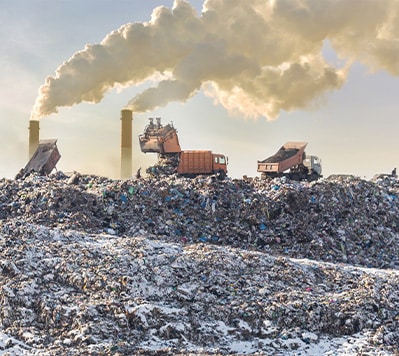Propane’s Recycling Edge Over Batteries, Wind, and Solar
Propane has been approved as an alternative clean-burning fuel since the passage of the Clean Air Act in 1990, and the Energy Policy Act of 1992. When propane burns, it emits fewer emissions than diesel fuel and fewer greenhouse gases than gasoline. That may be one of the reasons that propane use is growing in a more environmentally-conscious America.
Another attractive feature of propane is the fact that it doesn’t have a shelf life. This means that propane can be safely stored indefinitely until it is needed. This is in direct contrast with other alternative energy sources that at the end of their lives must either be thrown away or repurposed into a less valuable product.
Recycling Electric Batteries
The lifecycle of electric vehicle (EV) batteries underscores pressing environmental concerns, especially due to the unsustainable mining of critical minerals like cobalt and lithium, primarily overseas. Unlike propane, which can be stored indefinitely and lacks a defined period of usefulness, batteries face sustainability challenges both in production and end-of-life management.
Currently, no good solution exists to recycle the lithium batteries that power electric cars.1 The recycling process for EV batteries is inefficient, costly, and generates significant emissions, detracting from the environmental advantages often attributed to electric vehicles. There is also no single governing body that tracks expired batteries, leaving many to wonder what will happen to these 1,000-pound batteries once their usefulness has expired. This situation emphasizes the urgent need to address the sustainability and recycling dilemmas inherent in battery technology.
Recycling Wind Turbine Blades
Wind turbine blades used at wind farms, designed to last 20-30 years, eventually succumb to the elements and need replacement. Unlike typical propane tanks made from 85% recycled steel and boasting 100% recyclability, including their brass fittings, turbine blades present a significant challenge. These blades, reaching up to 200 feet in length and weighing as much as 15 tons, cannot be easily recycled and often end up in landfills. The process of decommissioning involves cutting the blades into manageable pieces and transporting them, usually via diesel-powered tractor-trailers, to their final resting places, highlighting an environmental concern.
While there are initiatives aimed at creating more recyclable blades by simplifying component extraction, the United States still lacks a straightforward method for recycling wind turbine blades, with most destined for landfills.2 This situation underscores a critical dilemma in America’s journey toward sustainability. In our effort to harness cleaner energy sources like wind power, we face the unintended consequence of generating new environmental challenges, questioning whether we are merely substituting one problem for another.
Recycling Solar Panels
Solar panels usually come with a 25-year warranty but may last past their warranty life. Solar panels also present a unique challenge for those who want to recycle them.3 The primary material, glass, can be separated out and is easy to recycle, but not worth much on the open market. Ultimately, it costs more to break a panel down than what the raw materials are worth.
Another problem exists with classifications. Besides glass, aluminum and plastic, solar panels contain materials that classify them as hazardous waste in most parts of America, preventing their disposal in landfills. When compared to propane, the economics of solar recycling fall short.
Propane: A Sustainable Energy Solution
Propane stands out as an eco-friendly alternative amidst the environmental challenges of batteries, wind turbines, and solar panels. Its benefits—low emissions, indefinite storage, and full recyclability—contrast sharply with the sustainability issues of other energy sources. The inefficient recycling of electric batteries, the disposal problems of wind turbine blades, and the recycling inefficiencies of solar panels underscore the need for greener solutions. Embracing propane can significantly mitigate these environmental concerns, offering a practical path towards a more sustainable and cleaner energy future.
Sources
- https://www.ocregister.com/2022/01/27/what-happens-when-millions-of-electric-car-batteries-get-old/
- https://www.bloomberg.com/news/features/2020-02-05/wind-turbine-blades-can-t-be-recycled-so-they-re-piling-up-in-landfills
- https://www.greenbiz.com/article/solar-panels-have-come-long-way-recycling-them-has-not
